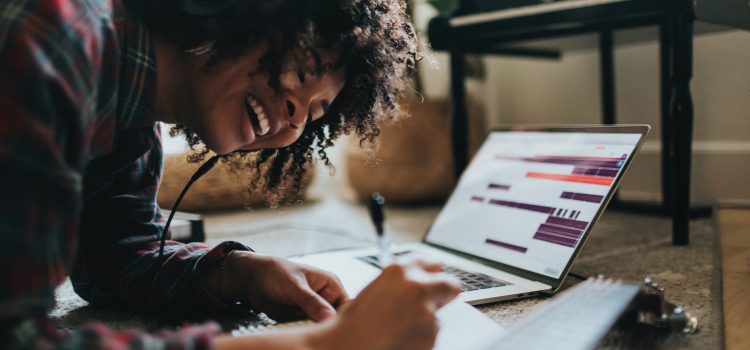
I hear it often after completing an an oral history interview: “Wow, this feels like therapy!” And it does for everyone involved. Talking about your life, the good parts and bad parts, feels healing, and a little bit like therapy – the best kind, the healing kind.
Times are strange and we find ourselves looking for ways to be productive and add happiness to our lives while things feel so uncertain. One of the best ways to accomplish this is taking some time to get to know your family a little better. It’s easy to feel discouraged in the wake of a pandemic or other hardships of life. One of the best ways to lift spirits is to remember.
The power of family stories is real and palpable and the cool thing about recording oral history is that we don’t have to do it in person. While that is a fun option if circumstances permit, over the phone interviews are also a great option to capture a life story with a classic phone interview. It’s worth it because there is true power in oral history.
Turn on that recorder…
Recently I sat with a client as we worked on writing his life story. I asked a simple question about the example his parents set for him. As he started to talk, he became emotional relaying an experience with his deceased parents. I reached out and pressed “record” on my digital recorder that was sitting between the two of us. As he shared a particularly tender part, tears streamed down his cheeks and the emotion was captured in his voice on the recorder.
I felt the connection between him and his parents as he talked about they way they did things together and their example of service to him when he was a teenager. The mood he evoked as he talked is hard to convey in written word, but now it will be recorded for generations to come to listen to and to learn from. That, my friends, is why oral history is priceless for both the sharer and the listener. Later that day as I prepared to leave I grabbed my recorder. He chuckled as he noticed me tucking it away.
“I forgot you turned that on,” he said with a light laugh.
“It was good stuff, I had to record it,” was my quick reply.
“I’m glad you did,” he said with a smile.
Me too, I thought. The magic of oral history is alive and well in this time of immediate gratification and video craze.
So, why do oral history? We have four easy, yet vital reasons to set a date and get started today.
1. It’s Simple.
Oral history interviews don’t require fancy set-ups and backdrops. All you need is a small digital recorder or your phone and a quiet spot.
I have witnessed this magic of oral history interviewing over and over again. When you turn on a tiny audio recorder, the interviewee isn’t bothered by it and often even forgets it is there, allowing them to feel free with their storytelling and memories. I will say that one advantage of the pandemic is that we have loosened up quite a bit with appearing on camera. Zoom has released some of our nerves and given those of us in the oral history industry a whole new avenue of recording histories by using video.
Related: Recording and editing audio
Simple yet powerful
There is something powerful about voice. I bet any of us can think of at least one person we would give anything to hear again. I know I can. When I’m missing my grandparents, I pull out a series of oral history interviews my husband and I did with them a couple of decades ago. I immediately feel their warmth and love again. There is a realness that comes from a voice that can’t be captured in any other way.
Furthermore, it is my experience that writing a life story from that voice recording holds more power that copying from journals or other sources too. Those sources are important, but there is something about a voice. That’s why again and again, we get glowing feedback from these oral history interviews.
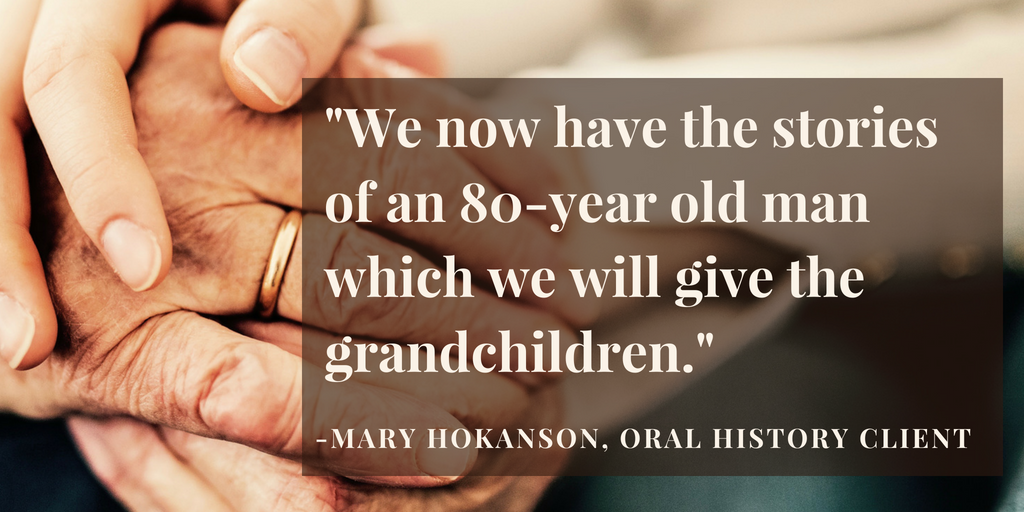
2. Oral history is one of the easiest, most enjoyable ways to finish a life story.
There is one theme we hear from clients and class participants more than any other: “How do I get my story unstuck?” Variations on this theme include: How do I start? How do I organize my project? How do I overcome procrastination? How will I ever get it done?
The simplest answer has revealed itself to us over time: life story interviewing. This process helps people articulate their stories in a way that makes it easy to write later. The act of doing interviews feels warm and rewarding, not like an obligation that needs to be crossed off the list or a burden to finish, but instead it is a rich experience that bonds the teller with listener.
In many cases, we have found that people thought they needed to write their life story, which felt like an impossibly daunting undertaking. When we have guided them through a series of life story interviews, the result was enough…more than enough. Many of our clients are wonderful storytellers, but not writers. Great! This process is perfect for that.
Transcribe it or just treasure it!
After the interviews, audio can be transcribed, written into stories, or made into videos. However, none of these additional steps are necessary. In many cases, simply recording one or more life story interviews is enough to feel good about it being done. Sure, you may have wonderful visions of a book. The reality, however, is that this may not be needed and the weight of this task might keep you from ever getting it done. Oral history breaks through all of this.
It’s also easy to engage the younger generation in this process. There are voice recording apps for their phones that are easy to use. Getting them involved unites generations in a very special way, providing not only an intergenerational connection but a spiritual one as well because there is a special feeling that seems to always appear during oral history interviews.
Related: Is Family History For Kids? Yes!
3. It paints a picture like nothing else
I really love these thoughts on oral history from a study conducted at Baylor University:
Oral history provides a fuller, more accurate picture of the past by augmenting the information provided by public records, statistical data, photographs, maps, letters, diaries, and other historical materials. Eyewitnesses to events contribute various viewpoints and perspectives that fill in the gaps in documented history, sometimes correcting or even contradicting the written record. Interviewers are able to ask questions left out of other records and to interview people whose stories have been untold or forgotten. At times, an interview may serve as the only source of information available about a certain place, event, or person.
This is so true! Earlier this year I interviewed an 80-year-old man and his wife to tell his life story. We did a series of six interviews that he could share with his children and grandchildren. As we started, the plan was to do just one or two interviews, to get the “bare bones” of his life. After the first interview, we had unleashed a large cavern of memories that he was eager to share.
He loved telling about his hometown, his mother’s cooking and his journey to find a career he loved. As he talked he revealed parts of his past he had long-since forgotten, both happy and sad memories. Those interviews, peppered with simple questions, helped him remember his life. And now those memories will not be forgotten. They are saved in cloud storage (Dropbox), and on a flash drive. Plus, because we recorded them in 30-minute increments, they can be uploaded to Familysearch to be enjoyed for limitless time.
Related: Oral history questions and audio resources
4. Oral history interviews jog your memory
It seems that oral history interviews jog the memory in the same type of way music does. Certain questions can take us back in time to a place we love to remember. Or even to a moment that may have seemed hard at that time but we can now see what we have learned from it and are able to share it. Either way, oral history is something priceless to capture for yourself and future generations.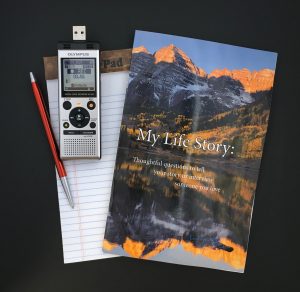
I love when I ask someone about their mother’s favorite recipe. The look on their face is priceless and is usually followed by a smile and the close of the eyes as they go back to the last time they ate it. Once that memory is unraveled, many other memories of home and growing up often come up. A simple question can yield a whole slew of childhood of thoughts.
Often, when I start a series of interviews, I ask people to keep a notepad handy after I leave so when a memory comes to mind, they can jot it down. Starting the interview process helps people remember many more things. It’s amazing to see how jogging those thoughts brings those memories back over a series of days and weeks.
Related: Talking about the hard stuff
The interviewer matters too
I find that oftentimes, talking to a stranger opens up thoughts that talking to a family member doesn’t necessarily unveil. Brandon Stanton of Humans of New York fame shared this same idea. He found that when he approached people on the street they were willing to share personal insights with him because he was safe and withheld judgement on their responses or memories. I think nearly every interview I have done with a couple or a child/parent has yielded the response, “I have never heard that story before,” or “I didn’t know that about you.” Listening is an attitude, and sometimes a stranger who wants to hear can make the difference in someone being willing to share.
Related: 12 tips to record voice
Couple interviews are fun because the couples reveal tender feelings that often make the other beam with happiness or even shed tears of joy. Sharing a love story often does that.
Sometimes we think we have to wait for everything to be in order before starting our life story or that of a loved one. I’m here to say, don’t wait. Do it now and it will be enough. Something is better than nothing. Basic, simple questions can yield marvelous memories. Taking those questions one step further for greater detail can be even more magical.

Rachel J. Trotter is a senior writer/editor at Evalogue.Life – Tell Your Story. She tells people’s stories and shares hers to encourage others and especially loves family storytelling. A graduate of Weber State University, Rachel has had articles featured on LDSLiving.com and Mormon.org. She and her husband, Mat, have six children and live on the East Bench in Ogden, Utah.
Do a family history interview

Sign up and we will email you a free, printable download of our mini-course to conduct a great oral history interview. You will be done in a week or less.

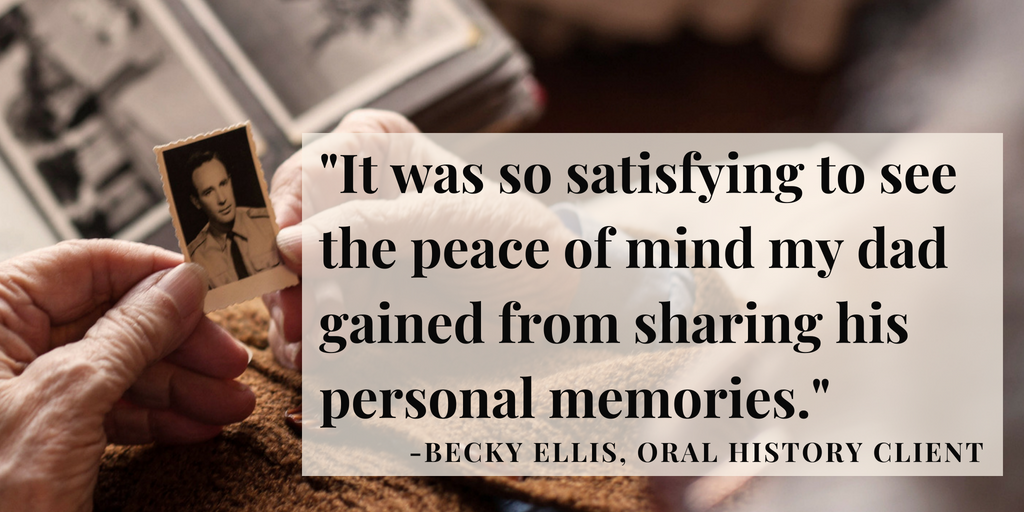


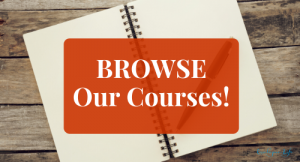
Every retirement home that houses clients who still have memory should have an official oral historian, preferably paid a few dollars.
Every family should raise a child or grandchild who has training as an oral historian.
Do you transcribe these oral histories into writing?
I have done 1000’s of oral histories and have a booklet (free on line) on oral history. Please reply.
Retired BYU professor, “professional” oral historian. Please reply.
Yes we do, if our clients are interested. We’d love to work with you!
Hi Don, Thank you for your post! We should definitely keep in touch because your interests so closely align with ours. We would love to see your booklet on oral historian. Yes, you are right that every retirement community should be gathering oral histories of their residents. Yes, every family should train children too. In answer to your question, whether we transcribe the oral histories or not depends on the project. Transcription adds a lot of time and cost. Sometimes we run them through Dragon to get a rough transcription and sometimes we do full transcriptions. Sometimes families do this part themselves, and we help teach them how to do it efficiently. I’ve written a very detailed article on all the transcription methods we use. Here’s that link, if you would like to check it out. http://evalogue.life/tools-and-resources/transcription-tools/